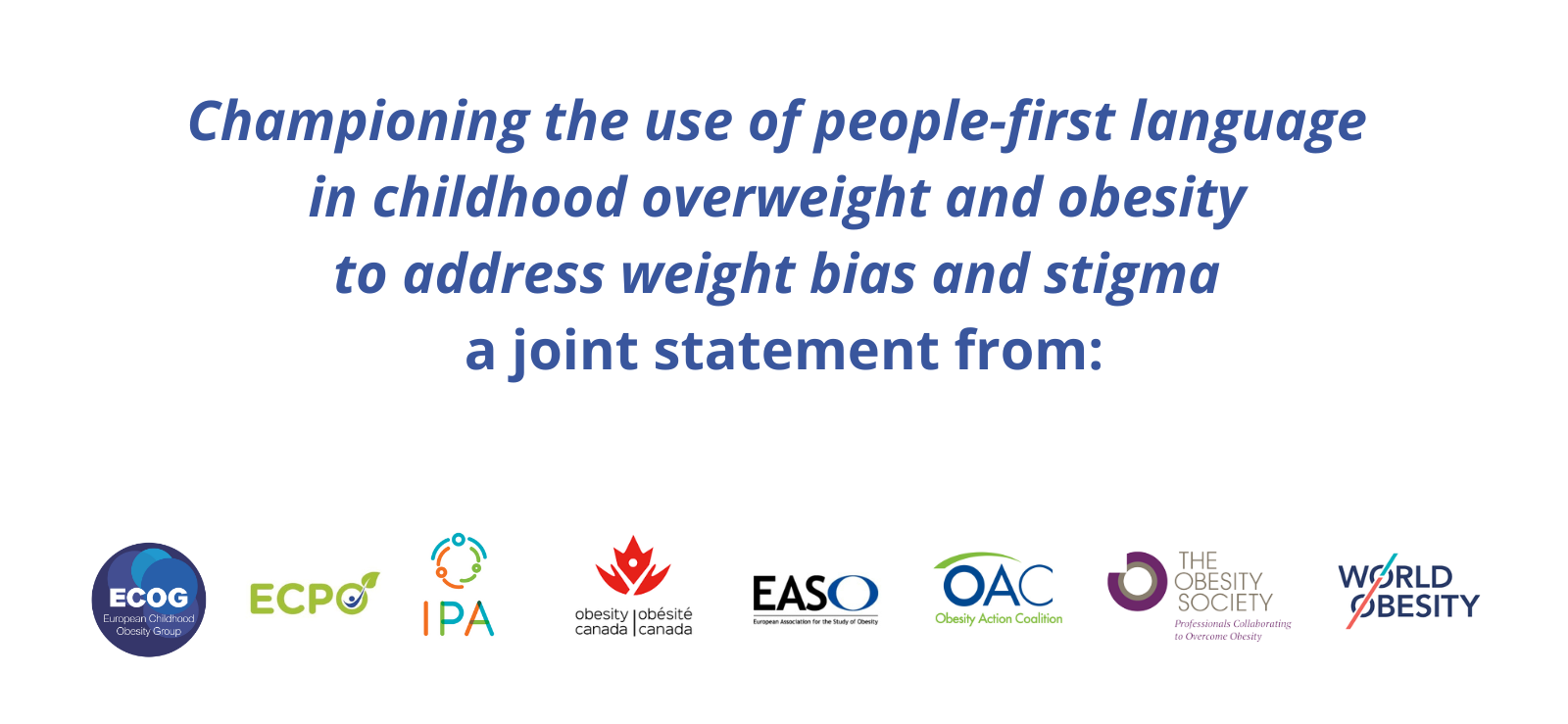Championing the use of people-first language in childhood overweight and obesity
An editorial was recently published in renowned World Obesity Federation journal, Pediatric Obesity, addressing the importance of using people-first language in childhood overweight and obesity.
This joint statement in support of people-first language has been signed by the following organisations:
- the European Childhood Obesity Group (ECOG),
- the European Association for the Study of Obesity Childhood Obesity Task Force (EASO COTF),
- the International Pediatric Association (IPA),
- Obesity Canada,
- the Obesity Action Coalition (OAC),
- The Obesity Society (TOS),
- and the World Obesity Federation (WOF).

This article, titled ‘Championing the use of people-first language in childhood overweight and obesity to address weight bias and stigma’ is accessible via open access at this link.
Professor David Thivel, President of the ECOG and coordinator of this joint statement, comments:
"This paper emphasises the importance of considering the use of people-first language when it comes to pediatric obesity, by all who work with, care for or support children and adolescents, in order to avoid stigmatisation and to create an appropriate and optimal context to optimise their development, health and well-being. Importantly, this is the first time that the main international organisations and scientific societies working in the field of obesity have collaborated on such a joint statement."
Championing the use of people-first language in childhood overweight and obesity to address weight bias and stigma
The use of person-first and patient-first language in referring to adult obesity is gaining ground as the preferred standard. This language underscores the significance of referring to individuals as "people with obesity" instead of identifying people solely by their disease, as is commonly the case with disease-first language. Using people-first language aims to acknowledge that individuals with obesity are more than their weight, shape or size, and seeks to minimise negative bias, stigma and discrimination.
In order to address the high levels of stigma experienced in healthcare and educational institutions by children and adolescents living with obesity, ECOG is championing the use of people-first language in childhood overweight and obesity.
The organisation invited EASO, COTF, IPA, Obesity Canada, OAC, TOS, and WOF to lead the charge in promoting the use of person-first and people-first language, and to take action to reduce weight bias, stigma, and discrimination among individuals working with children and adolescents who have obesity.


Reflecting on the editorial, EASO President Professor Jason Halford said,
"This article carries a strong message about the power of language; we must all strive to do better in how we communicate about body weight, particularly with children. EASO recognises the challenging realities of every person living with obesity, people who are not defined by their weight. We are pleased to be part of this collaborative call to action for Europe to build the optimal supportive environment to drive better health and wellbeing for our young people."
This joint statement underscores the significance of using positive language and taking proactive measures to counter weight bias and stigma. Doing so will enhance obesity interventions and management. In turn, this may drive positive social outcomes for all children, regardless of their weight or health status.
Access the article now
Click here to read this article in Pediatric Obesity, an official journal of the World Obesity Federation, which presents the latest research on obesity during childhood and adolescence.
Access article